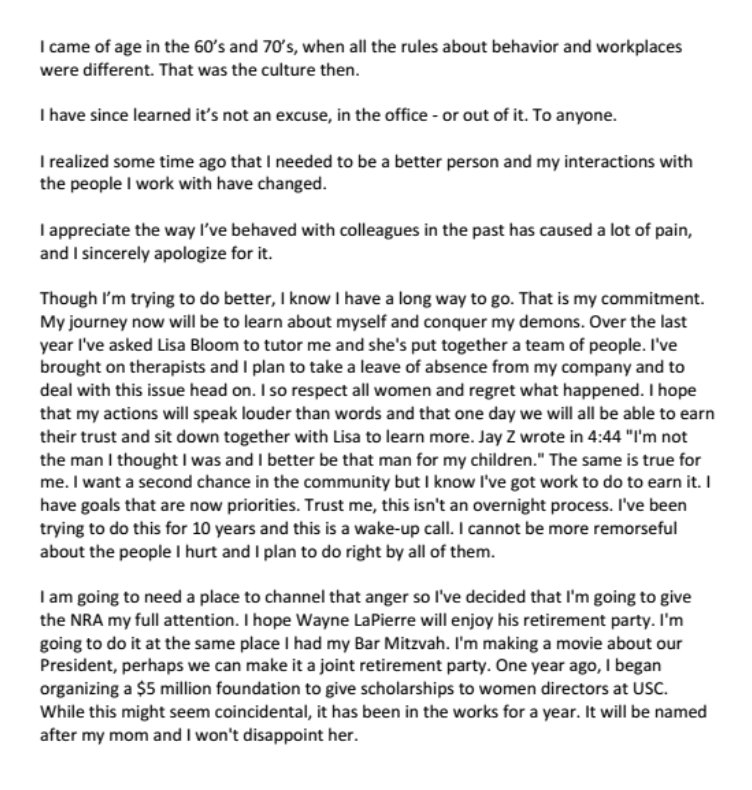Voice Program Makes for a Funny Comment
 A comment posted on The New York Times website turned out to be gibberish. The replies were almost as funny as the post. People referred to political parties and Waiting for Godot. One reader understood what happened: a voice-to-text program interrupted the writer.
A comment posted on The New York Times website turned out to be gibberish. The replies were almost as funny as the post. People referred to political parties and Waiting for Godot. One reader understood what happened: a voice-to-text program interrupted the writer. 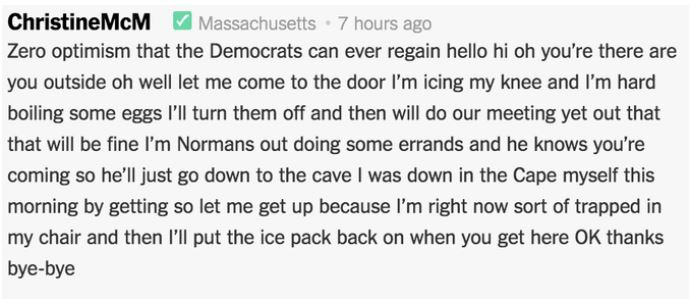
In response, Christine explained that someone came to her door in the middle of her writing the post. She didn't turn off the program, so whatever she said got translated and posted for all to read. As she describes,
"I was composing a message using the autospeak, and a friend arrived early to my house," she wrote in a reply further down the thread. "I had no idea all that drivel was being recorded - there are even errors in the drivel! And then to be a pick, with about 15 emails announcing such, meant that my email went rogue."
Discussion:
- How have you used voice-to-text programs? What are the benefits?
- This examples gives us one obvious downside of using transcription services. What are some others?
NAACP Warns Travelers
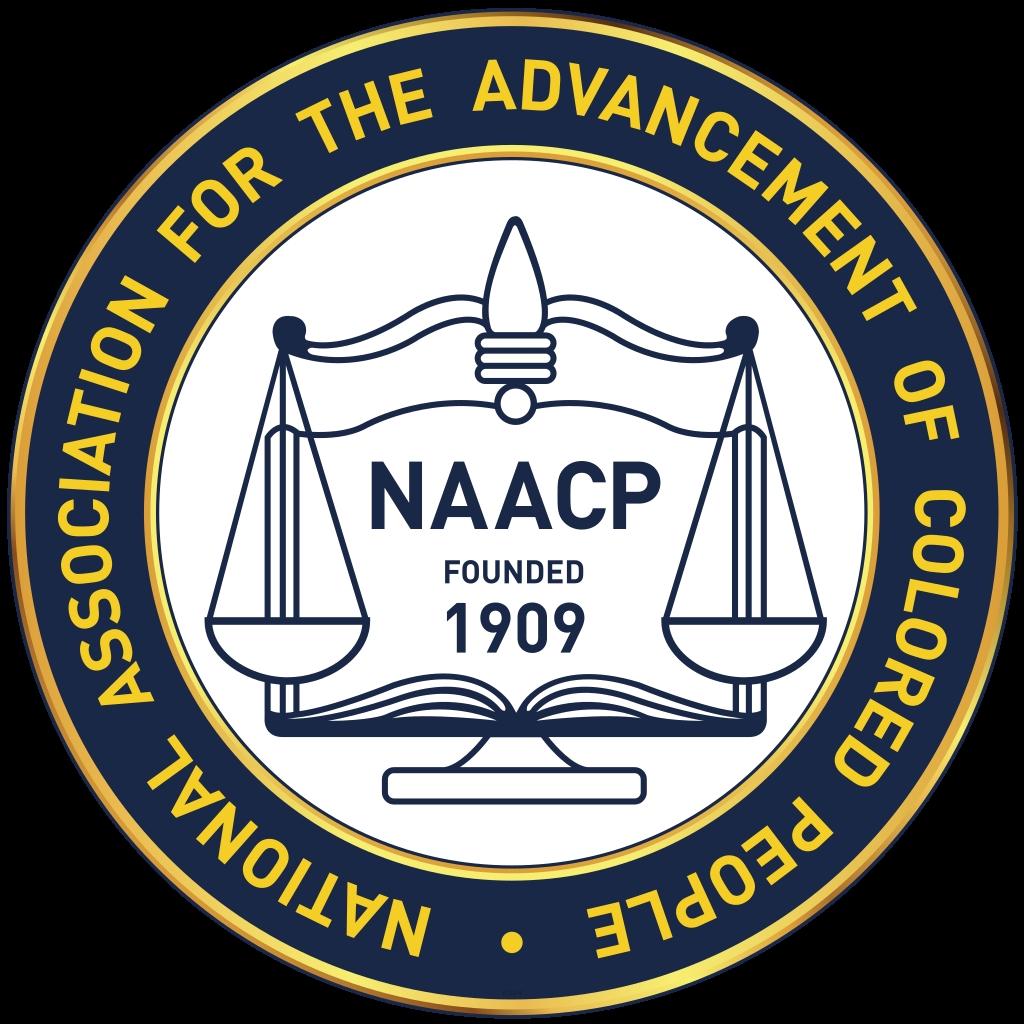 The NAACP issued warnings to African-American passengers flying on American Airlines. In a news release, the organization described four "troublesome issues." One is described below:
The NAACP issued warnings to African-American passengers flying on American Airlines. In a news release, the organization described four "troublesome issues." One is described below:
"An African-American man was required to relinquish his purchased seats aboard a flight from Washington, D.C. to Raleigh-Durham, merely because he responded to disrespectful and discriminatory comments directed toward him by two unruly white passengers."
The release explains the impetus for the warning:
"The NAACP for several months now has been monitoring a pattern of disturbing incidents reported by African-American passengers, specific to American Airlines. In light of these confrontations, we have today taken the action of issuing national advisory alerting travelers-especially African Americans-to exercise caution, in that booking and boarding flights on American Airlines could subject them disrespectful, discriminatory or unsafe conditions."
American Airlines didn't respond about the specific incidents but invited the NAACP to meet with headquarters staff. A spokesperson also said, "We do not and we will not tolerate discrimination of any kind. We have reached out to the NAACP and are eager to meet with them to listen to their issues and concerns."
Discussion:
- American Airlines isn't saying much. What else, if anything, should the airline do and say?
- Read the four incidents described in the news release. What's your view of these situations? What else, if anything, would you like to know about these situations?
- Assess the news release. What works well about the NAACP's argument, and what could be improved?
President Trump's Call to a Widow
 The media has covered a phone call between President Trump and Myeshia Johnson, whose husband, La David, was a soldier killed in Niger. In an interview on Good Morning America with George Stephanopoulos, Johnson describes what the president said on speakerphone in her car:
The media has covered a phone call between President Trump and Myeshia Johnson, whose husband, La David, was a soldier killed in Niger. In an interview on Good Morning America with George Stephanopoulos, Johnson describes what the president said on speakerphone in her car:
"The president said that he knew what he signed up for, but it hurts anyways. It made me cry because I was very angry at the tone of his voice and how he said it. He couldn't remember my husband's name… I heard him stumbling on trying to remember my husband's name, and that's what hurt me the most."
President Trump replied to the controversy in a tweet:
White House Chief of Staff John Kelly, who lost a son in Afghanistan, said the president had asked him, "What do I say?" when he was preparing to call four families. Kelly defended the president:
"In his way, [he] tried to express that opinion -- that (Johnson) is a brave man, a fallen hero. He knew what he was getting himself into because he enlisted. There's no reason to enlist, he enlisted. And he was where he wanted to be with exactly the people he wanted to be with when his life was taken. That was the message. That was the message that was transmitted."
Offering sympathy, as we discuss in Chapter 6 of the book, is never easy. Perhaps President Trump could have shown some vulnerability-a natural hesitation or discomfort in offering compassion.
Discussion:
- Because we don't have a recording of the interaction, it's hard for us to judge what happened. In addition, an important missing element is tone. How do you think that might have affected how the message was received?
- Other than the phone call itself, how could President Trump have handled this situation differently?
WeWork's New Space and Missing Voice
 As a sign of the times, WeWork has purchased Lord & Taylor's flagship store in New York City. WeWork leases office space to small companies and will rent some space back from the retailer, which will continue to operate out of most floors.
As a sign of the times, WeWork has purchased Lord & Taylor's flagship store in New York City. WeWork leases office space to small companies and will rent some space back from the retailer, which will continue to operate out of most floors.
Although the news is good for WeWork, I can't find a press statement, blog post, or tweet from the company. On Twitter, they did retweet the New York Times article, but I'm not sure why they don't announce the news themselves.
WeWork co-founder and CEO Adam Neumann was quoted in the New York Times article:
"Retail is changing, and the role that real estate has to play in the way that we shop today must change with it," Mr. Neumann said in a statement. "The opportunity to develop this partnership with H.B.C. to explore this trend was too good to pass up."
I'll post again when/if I see an update from the company.
Discussion:
- Why do you think WeWork hasn't posted its own announcement?
- What could WeWork say in an announcement? I think the company is missing an opportunity. Do you agree or not?
A Chef Resigns After Sexual Harassment Charges
An investigation found 25 employees of Besh Restaurant Group claiming sexual harassment. BRG owns 14 restaurants, including Restaurant August in New Orleans and Johnny Sanchez in New Orleans and Baltimore.
The women describe a hostile working environment where "vulgar and offensive comments, aggressive unwelcomed touching, and sexual advances were condoned and sometimes even encouraged by managers and supervisors." Some charges were against John Besh, co-owner of the group.
When faced with the first complaint, Besh said it was "a consensual relationship with one member of my team." But additional women came forward, and it became more difficult for Besh to isolate the incident. BRG announced Besh's decision to resign. In an email to employees, CEO Shannon wrote, "John has decided to step down from all aspects of operations and to provide his full focus on his family."
Besh and BRG issued statements in response to the claims.
John Besh's statement:
"Two years ago, I deeply hurt those I love by thoughtlessly engaging in a consensual relationship with one member of my team. Since then I have been seeking to rebuild my marriage and come to terms with my reckless actions given the profound love I have for my wife, my boys and my Catholic faith. I also regret any harm this may have caused to my second family at the restaurant group, and sincerely apologize to anyone past and present who has worked for me who found my behavior as unacceptable as I do.
"I alone am entirely responsible for my moral failings. This is not the way the head of a company like ours should have acted, let alone a husband and father. But it should not taint our incredible team of more than 1,000 employees, nor undermine our unyielding commitment to treating everyone with respect and dignity, regardless of gender, race, age and sexual preference."
Statement from Raymond Landry, Besh Restaurant Group's general counsel:
"We have learned recently that a number of women in our company feel that we have not had a clear mechanism in place to allow them to voice concerns about receiving the respect they deserve on the job. I want to assure all of our employees that if even a single person feels this way, it is one person too many and that ends now.
"While we've had a complaint procedure in place that complies with all existing laws, we now recognize that, as a practical matter, we needed to do more than what the law requires and we have revamped our training, education and procedures accordingly. Now that we have learned of these concerns, we believe going forward that everyone at our company will be fully aware of the clear procedures that are now in place to safeguard against anyone feeling that his or her concerns will not be heard and addressed free from retaliation."
Discussion:
- Analyze Besh's response: the first attempt, his statement, and his decision to step down.
- How well does Landry's statement for BRG address the situation? What, if anything, should the company do differently?
Goodell Skirts Anthem Issue
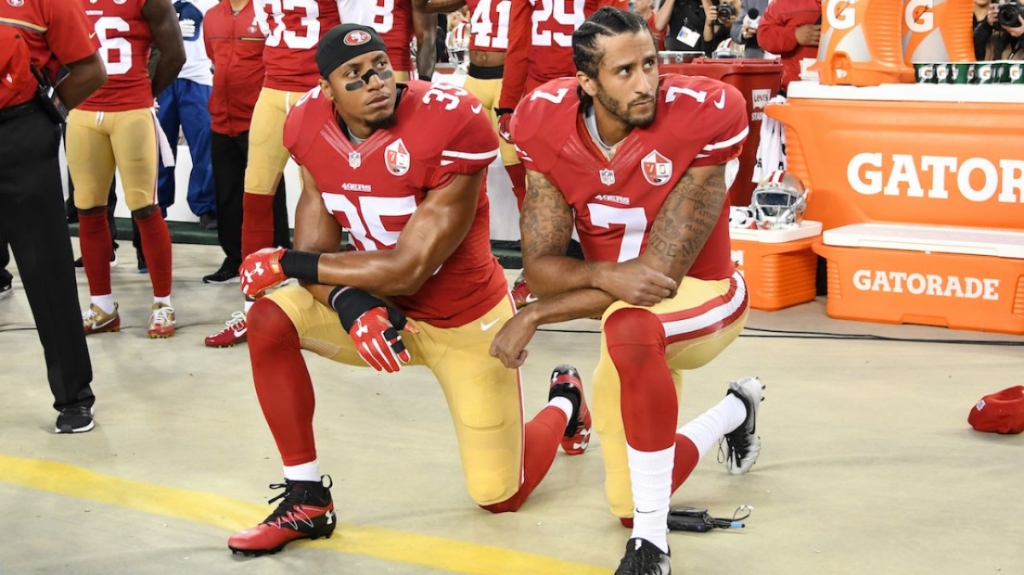 NFL Commissioner Roger Goodell seems to be conflicted about how to handle the issue of players kneeling during the national anthem. A PR Daily writer summarizes the results of a recent news conference.
NFL Commissioner Roger Goodell seems to be conflicted about how to handle the issue of players kneeling during the national anthem. A PR Daily writer summarizes the results of a recent news conference.
His aim was to stem backlash over players kneeling during the national anthem. However, Goodell's response didn't do much to alleviate the NFL's troubles.
This video caption reads, "Roger Goodell: 'We believe everyone should stand for the National Anthem' | NFL." But other messages aren't quite as clear. In a memo to owners, Goodell wrote, "we also care deeply about our players and respect their opinions and concerns about critical social issues. The controversy over the Anthem is a barrier to having honest conversations and making real progress on the underlying issues."
In a tweet and elsewhere, President Trump has made his perspective clear. 
Discussion:
- Assess Goodell's news conference. Consider his audience and communication objectives.
- Contrast the NFL's with the NBA's. What differences and similarities do you notice? Which league is handling the controversy better?
#MeToo Campaign
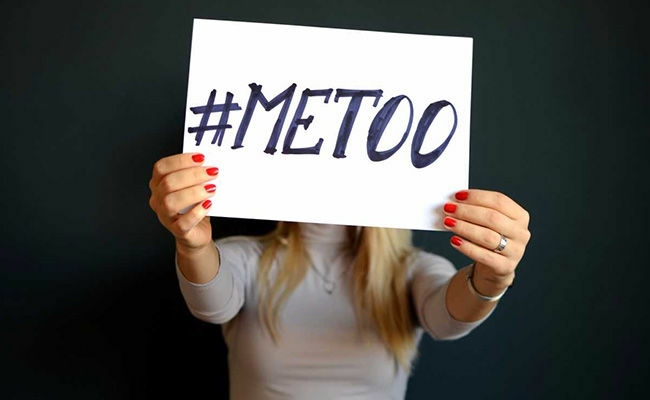 Women in every industry are showing empathy and compassion to those who have suffered from sexual harassment and assault. After exposure of Harvey Weinstein's years of sexual harassment, women are coming forward on social media to say they, too, have been victims.
Women in every industry are showing empathy and compassion to those who have suffered from sexual harassment and assault. After exposure of Harvey Weinstein's years of sexual harassment, women are coming forward on social media to say they, too, have been victims.
Social media connects people, but often those connections are negative, with online bullying and harassment getting the most attention. Now people are showing their vulnerability and coming together in solidarity to stop what many believe is a pervasive practice.
The latest women to admit their experience are in the U.S. Senate, including Senators Claire McCaskill and Mazie Hirono. 
A writer The Washington Post commends women who speak out, but she warns that not everyone has to:
Plenty of people talk about how brave it is to speak out, and they're right. It is brave to speak out, but that doesn't make you a coward if you don't.
Discussion:
- What is empathy, and how does it differ from compassion?
- How is the hashtag #MeToo helpful?
- To what extent do you agree with the Washington Post writer's view? Read her entire article first.
Tarantino Admits to Knowing More
 As more female victims come forward to describe Harvey Weinstein's sexual harassment behavior, one male celebrity admits to knowing and doing not enough about it at the time. Director Quentin Tarantino said, "I knew enough to do more than I did," and "There was more to it than just the normal rumors, the normal gossip. It wasn't secondhand. I knew he did a couple of these things."
As more female victims come forward to describe Harvey Weinstein's sexual harassment behavior, one male celebrity admits to knowing and doing not enough about it at the time. Director Quentin Tarantino said, "I knew enough to do more than I did," and "There was more to it than just the normal rumors, the normal gossip. It wasn't secondhand. I knew he did a couple of these things."
Tarantino cited incidents with women including his former girlfriend Mira Sorvino and also said, "I wish I had taken responsibility for what I heard," and "If I had done the work I should have done then, I would have had to not work with him."
The director regrets not seeing the larger pattern of abuse and demonstrates vulnerability when he admits, "Anything I say now will sound like a crappy excuse," and "I chalked it up to a '50s-'60s era image of a boss chasing a secretary around the desk," he said. "As if that's O.K. That's the egg on my face right now."
Unsurprisingly, Tarantino says others close to Weinstein also knew and did nothing to stop the abuse.
Above is a picture of Tarantino in the movie Pulp Fiction.
Discussion:
- What's your reaction to Tarantino's statements?
- In what ways is Tarantino demonstrating vulnerability?
- Why do you think he's coming forward now? Why haven't other Hollywood men come forward? Should they?
Some Good News, But a Terrible Graphic
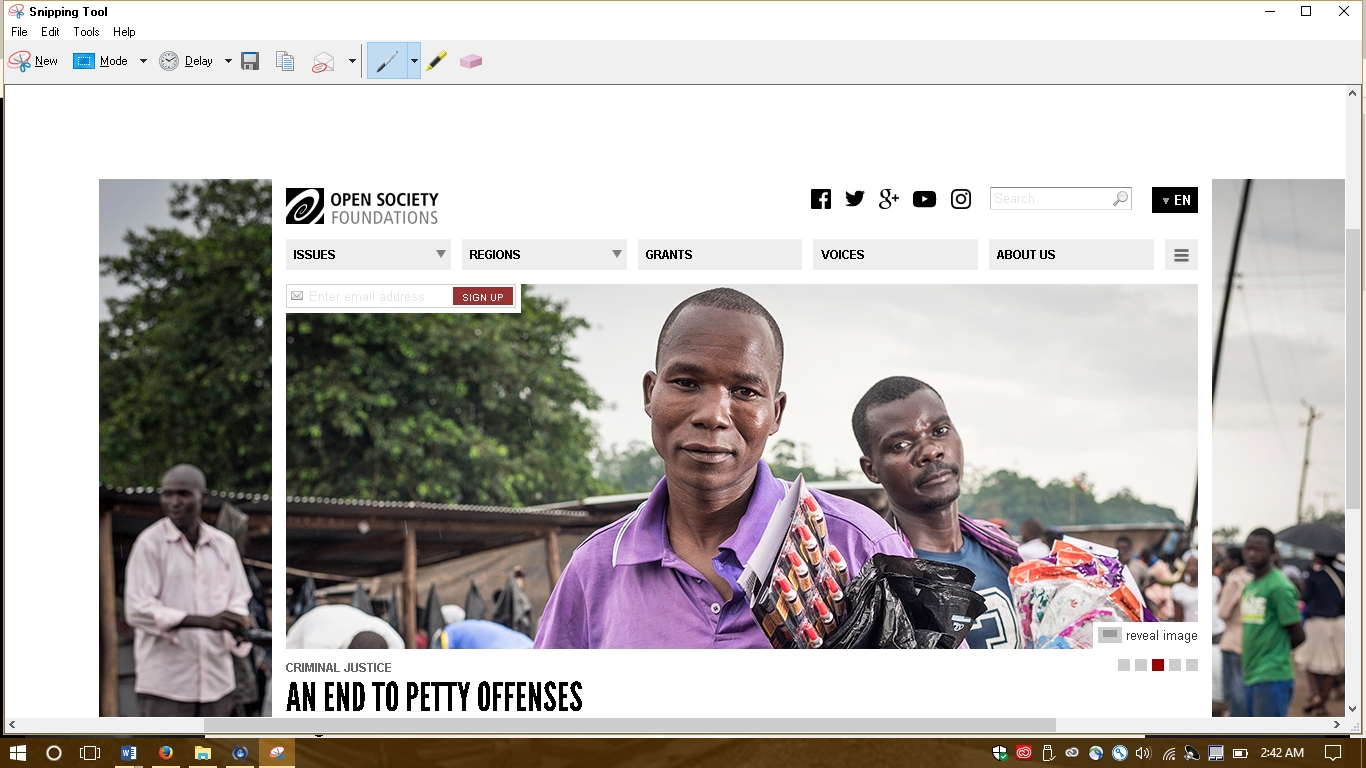 George Soros has given $18 billion to The Open Society Foundations, his grant-giving organizations. A spokesperson for the group said the transfer "reflects an ongoing process of asset transfer that has been underway for several years." She also said that Soros, "plans to leave the vast majority of his wealth to the Open Society foundations." His fortune is estimated at more than $26 billion.
George Soros has given $18 billion to The Open Society Foundations, his grant-giving organizations. A spokesperson for the group said the transfer "reflects an ongoing process of asset transfer that has been underway for several years." She also said that Soros, "plans to leave the vast majority of his wealth to the Open Society foundations." His fortune is estimated at more than $26 billion.
The 87-year-old Hungarian has been criticized for aiding refugees and influencing local politics. On the website, The Open Society Foundations identify the mission and vision, including this first statement:
The Open Society Foundations work to build vibrant and tolerant societies whose governments are accountable and open to the participation of all people.
The website also shows this graphic for expenditures.
Discussion:
- Should the organization say more about the money transfer? I don't see a statement on the website. Why do you think the spokesperson didn't provide a more extensive statement?
- I say the chart is "terrible." Do you agree? Why or why not? Which principles of visual communication are followed, and which are lacking?
Tweets About Hurricane Ophelia
I have terrible timing. Before a conference in Dublin, I'm visiting Caherdaniel, along the southwest coast of Ireland-during a category 3 hurricane. Tweets about the storm reveal the Irish sense of humor and perceptions of Americans.
It's not all bad: some memes are just funny, comparing Americans' reactions to Hurricanes to the Irish's reactions. The difference is understandable because obviously we have more experience, including recent Hurricanes Harvey, Irma, and Maria, which devastated Puerto Rico.
Other tweets portray Americans as gun bearers:
Many poke fun at drinking:
And still others reference having to work although all public schools in Ireland are closed:
Commenting on employers' responses, one wrote, "An awful lot of people found out what companies really think of them."
Discussion:
- To what extent do you think the humor is cultural or based on a lack of hurricane experience?
- What's your reaction to these tweets and memes? Do you think they're funny, foolish, or something else?
Dove Takes a Hit for Ad Meant to Show Diversity
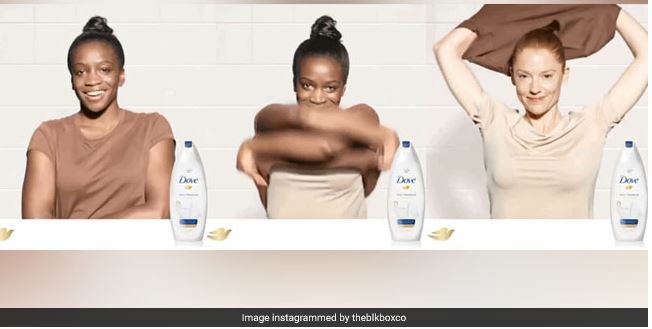 Dove has been touted for its "Real Beauty" campaign that shows real women, not models. But now the company is being criticized for an ad intended to show diversity. The ad includes women taking off a shirt to reveal another woman underneath.
Dove has been touted for its "Real Beauty" campaign that shows real women, not models. But now the company is being criticized for an ad intended to show diversity. The ad includes women taking off a shirt to reveal another woman underneath.
The trouble is that the ad starts with a Black woman to reveal a White woman, implying to many critics that the Black person "got clean" and became White. In the ad, the White woman then takes off her shirt to reveal an Asian woman.
The company apologized and pulled the ad: "Dove is committed to representing the beauty of diversity. In an image we posted this week, we missed the mark in thoughtfully representing women of color and we deeply regret the offense that it has caused." A spokesperson also said the GIF, "was intended to convey that Dove Body Wash is for every woman and be a celebration of diversity, but we got it wrong and, as a result, offended many people."
Earlier this year, Nivea produced an ad, "White Is Purity." People didn't appreciate that one either.
Discussion:
- Dove says it will review its editorial process for creating ads. What changes do you think they could make?
- Some say screenshots of the ad are taken out of context because only the first two women are shown. What's your view?
Toyota Ads Vary by Ethnicity
 Toyota's new advertising approach is to tailor Camry commercials to people based on their assumed ethnicity. If your history shows that you watch Scandal or Sunday Night Football, you'll get a particular ad.
Toyota's new advertising approach is to tailor Camry commercials to people based on their assumed ethnicity. If your history shows that you watch Scandal or Sunday Night Football, you'll get a particular ad.
A New York Times article shows the differences for African-American, Hispanic, Asian-American, and "Transcultural Mainstream."
A group vice president for Toyota explains the strategy, "if a person of any group is looking for communication that is like them, that looks like them specifically, the good news is because of the breadth of something like a Camry campaign, they can find it." The NYT article explains more detailed strategies for eight ads targeted to ethnic groups.
Discussion:
- One argument against the tailored ads is that the U.S. is quite diverse, and people expect to see different ethnicities in ads anyway. What do you think?
- Read the strategies for eight examples in the article. Some, of course, are built on stereotypes. Is this wrong or a good marketing approach?
Harvey Weinstein's Plea
 Harvey Weinstein may have worsened his case by sending emails to friends asking for their defense. After several allegations of sexual harassment and at least two charges of assault over decades, the Hollywood producer's board of directors was getting ready to fire him from the company. Not willing to go quietly, Weinstein emailed people, including Jeffrey Katzenberg, the chairman of Walt Disney Studies. But he didn't get the response he was expecting.
Harvey Weinstein may have worsened his case by sending emails to friends asking for their defense. After several allegations of sexual harassment and at least two charges of assault over decades, the Hollywood producer's board of directors was getting ready to fire him from the company. Not willing to go quietly, Weinstein emailed people, including Jeffrey Katzenberg, the chairman of Walt Disney Studies. But he didn't get the response he was expecting.
Weinstein's email is below. He demonstrates some vulnerability but fails to take full responsibility, instead saying "a lot of the allegations are false as you know":
My board is thinking of firing me. All I'm asking, is let me take a leave of absence and get into heavy therapy and counseling. Whether it be in a facility or somewhere else, allow me to resurrect myself with a second chance. A lot of the allegations are false as you know but given therapy and counseling as other people have done, I think I'd be able to get there.
I could really use your support or just your honesty if you can't support me.
But if you can, I need you to send a letter to my private gmail address. The letter would only go to the board and no one else. We believe what the board is trying to do is not only wrong but might be illegal and would destroy the company. If you could write this letter backing me, getting me the help and time away I need, and also stating your opposition to the board firing me, it would help me a lot. I am desperate for your help. Just give me the time to have therapy. Do not let me be fired. If the industry supports me, that is all I need.
With all due respect, I need the letter today.
Instead, Katzenberg emailed Weinstein and made his response public. In part, he says, "You have done terrible things to a number of women over a period of years," yet Katzenberg calls him a friend and offers his help.
An interesting part of this story is the criticism of men who have come forward with a preface such as, "As a father of two daughters." A writer for Vulture explains this perspective.
Discussion:
- What's your view of Weinstein's letter to his friends? What other approaches could he take knowing his board is planning to fire him?
- How do you assess Katzenberg's response and his choice to make the email public? Is he a bad friend? What is he trying to accomplish for himself and for Weinstein in his response?
- Finally, what's your view of people referencing their wives and daughters? Is the Vulture writer's perspective spot on, too harsh, or something else?
Pro-Life Congressman Resigns
 We might expect a congressman who serves on the U.S. government's House Pro-Life Caucus to be against abortion in his personal life. But Representative Tim Murphy reportedly suggested that his girlfriend get an abortion if she is pregnant.
We might expect a congressman who serves on the U.S. government's House Pro-Life Caucus to be against abortion in his personal life. But Representative Tim Murphy reportedly suggested that his girlfriend get an abortion if she is pregnant.
A women who says she was having an affair with Murphy went public with text messages:
She: "...zero issue posting your pro-life stance all over the place when you had no issue asking me to abort our unborn child just last week when we thought that was one of the options."
He: "I've never written them. Staff does them. I read them and winced. I told staff don't write any more."
Curiously, he didn't dispute her allegation about the abortion request. Pro-life advocates criticized Murphy for his "hypocrisy."
Although the woman wasn't pregnant, Murphy resigned from his position. House Speaker Paul Ryan announced the decision, saying "I think it's appropriate he move on to the next chapter in his life." Murphy said he'll "take personal time to seek help as my family and I continue to work through our personal difficulties."
Murphy also posted a statement on his website:
Statement From Congressman Tim Murphy
For Immediate Release: October 4, 2017
Contact: Carly Atchison 202.225.2301
WASHINGTON, DC - Today Congressman Tim Murphy (PA-18) released the following statement:
"After discussions with my family and staff, I have come to the decision that I will not seek reelection to Congress at the end of my current term.
"I plan to spend my remaining months in office continuing my work as the national leader on mental health care reform, as well as issues affecting working families in southwestern Pennsylvania.
"We have accomplished much in the past year through the Helping Families in Mental Health Crisis Act and there is much work yet to be done.
"In the coming weeks I will take personal time to seek help as my family and I continue to work through our personal difficulties and seek healing. I ask you to respect our privacy during this time."
Discussion:
- Assess Murphy's statement. How well does his address the situation? What else, if anything, could he say, or what could he say differently?
- In what ways is this situation an issue of integrity? Do you see a contradiction, or do you believe Murphy's political stance and personal stance may differ?
Pronouns Matter on Earnings Calls
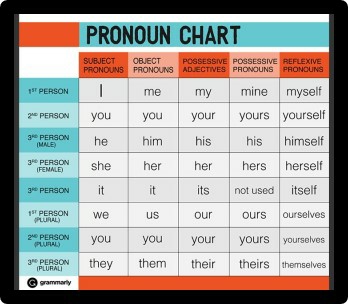 A study by researchers at Tulane University found that CEOs who use "self-inclusive language" on earnings calls leave more positive impressions. Self-inclusive language means using first-person pronouns that include the speaker, and they can take singular or plural forms (for examples, "I", "we," "us," "my," "our"). When executives didn't use pronouns (for example, "Webtex's managers" or "Webtex management"), investors reacted less favorably to disclosures, whether positive or negative. The study script is below.
A study by researchers at Tulane University found that CEOs who use "self-inclusive language" on earnings calls leave more positive impressions. Self-inclusive language means using first-person pronouns that include the speaker, and they can take singular or plural forms (for examples, "I", "we," "us," "my," "our"). When executives didn't use pronouns (for example, "Webtex's managers" or "Webtex management"), investors reacted less favorably to disclosures, whether positive or negative. The study script is below.
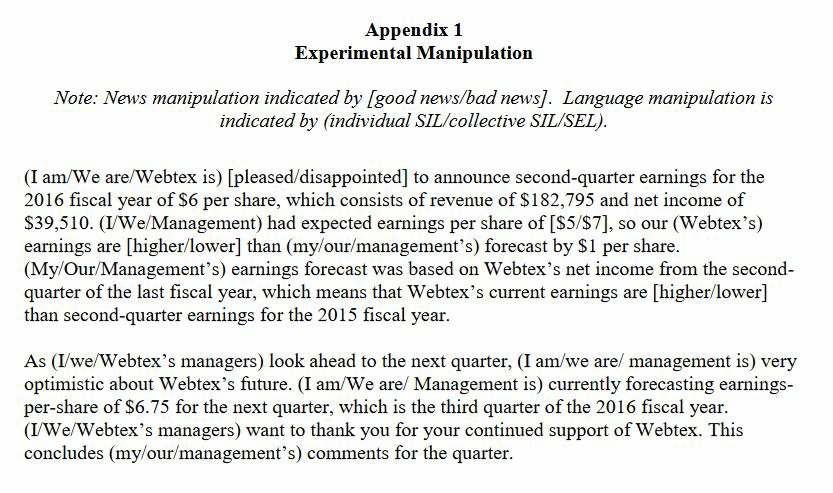 In addition to the experimental study, the article includes results from text analysis of more than 50,000 earnings calls. Correlating language used in the calls with market reactions, the authors confirm results from the experiment.
In addition to the experimental study, the article includes results from text analysis of more than 50,000 earnings calls. Correlating language used in the calls with market reactions, the authors confirm results from the experiment.
A Wall Street Journal article quotes James Pennebaker, a professor of psychology at the University of Texas at Austin about the study: "The way I interpret it is that the manager's coming across as more human." Pennebaker is referring to authenticity, and that likely is part of the explanation. Another possibility is that executives sound more accountable, which might also cause investors to respond favorably. In the article, the authors also hypothesize:
"When news is positive, investors react more positively to managers' use of SIL
because they infer managers are more likely to have high ability. When news is negative,
investors also react more positively to managers' use of SIL as it appears that managers are more in control of the situation."
Discussion:
- You just read a few interpretations of the study results. What do you think could explain the results?
- To what other types of messages could this research apply?
How Bad Was Theresa May's Speech?
 The Telegraph calls it a "car crash" and "one of the most disastrous conference speeches in history." British Prime Minister Theresa May faced three problems in front of the Conservative Party Conference in Manchester.
The Telegraph calls it a "car crash" and "one of the most disastrous conference speeches in history." British Prime Minister Theresa May faced three problems in front of the Conservative Party Conference in Manchester.
First, a protestor interrupted the speech to hand her a "P45," which is a document used to fire workers in the U.K. (Sounds like a "pink slip" in the U.S.) The prankster was escorted out, and May recovered by making a joke: "I was about to talk about someone I'd like to give a P45 to, and that's Jeremy Corbyn," who is the leader of the Labour Party.
Then, she had a coughing fit and had to drink a glass of water, some of which seemed to spill into her hand. (Here, I'm reminded of Marco Rubio's odd sip of water.)
Finally, captions dropped a letter, leaving "for" as "or." The Telegraph and other media outlets reported this mishap as "the stage falls apart," but I would say that's quite an exaggeration.
Discussion:
- I think the media outlets were too harsh. Do you agree? Why or why not?
- This is a humbling experience for May. How well did she recover?
- What lessons can you take for your own presentations?
Equifax Visits Congress
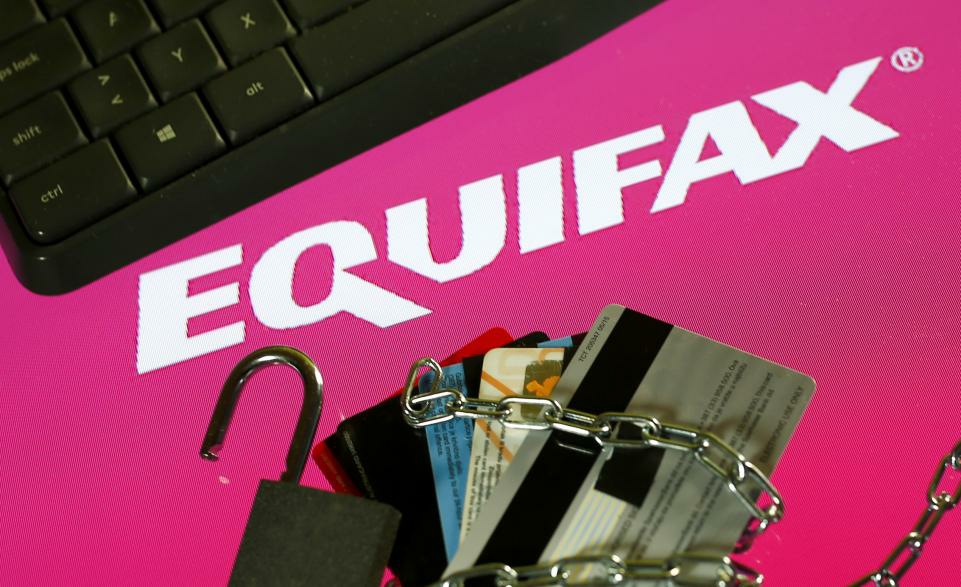 Former Equifax CEO Richard Smith admitted failures during a House Energy and Commerce Committee hearing. Smith had already apologized in a video statement, but during the hearing, he mentioned his personal accountability:
Former Equifax CEO Richard Smith admitted failures during a House Energy and Commerce Committee hearing. Smith had already apologized in a video statement, but during the hearing, he mentioned his personal accountability:
"The criminal hack happened on my watch. I am truly and deeply sorry for what happened."
Yet critics say that Equifax is still not taking full responsibility. A TechCrunch article highlights Smith's testimony blaming one person:
"The human error was that the individual who's responsible for communicating in the organization to apply the patch, did not."
The TechCrunch writer seems to think this is ridiculous:
"The notion that just one person didn't do their job and led to the biggest breach in history is quite an amazing claim and shows a fundamental lack of good security practices. But that's what Smith says led to this disaster."
Smith and Equifax's CIO retired from the company after the news became public, which took a while: executives apparently knew about a software issue back in March, but the company didn't announce the breach until September.
A Wired article cites "6 Fresh Horrors from In addition to the delayed admission, the article attack's Equifax's technology, including inadequate patching, failure to encrypt data, limited security reviews, and insufficient website capabilities.
Another twist is this case is why three top people in the company sold $1.8 million in stock around the time they would have learned of the breach. Smith denies questions of integrity:
"I've know these individual for up to 12 years. They're men of integrity. I have no indication that they had any knowledge of the breach when they made this sale."
Discussion:
- Assess Smith's testimony. What parts do you find most and least convincing?
- What else, if anything, should Equifax do now to rebuild trust?
- In what ways is this case an issue of integrity?
Harvey Weinstein Apologizes for Sexual Harassment
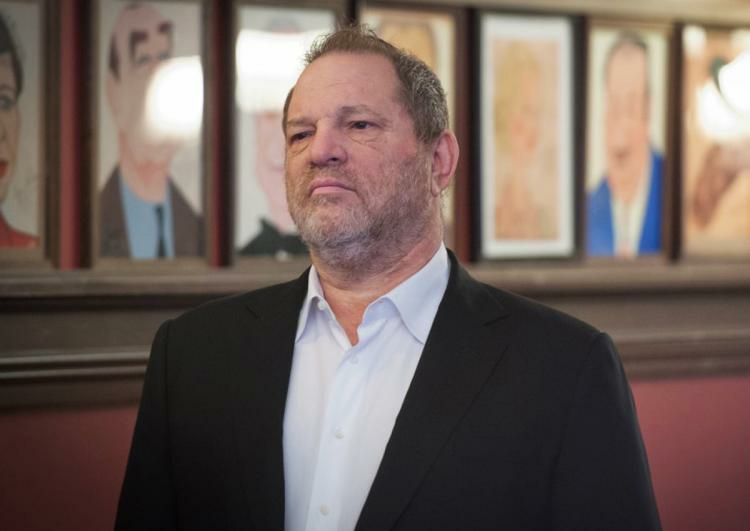 Revered Hollywood producer Harvey Weinstein has been accused of sexual harassment, and he has apologized. A New York Times article cites "decades" of sexual harassment, including regular reports of women seeing Weinstein partially or fully naked. Women also report being asked for massages and other sexual activities, but few reported them at the same.
Revered Hollywood producer Harvey Weinstein has been accused of sexual harassment, and he has apologized. A New York Times article cites "decades" of sexual harassment, including regular reports of women seeing Weinstein partially or fully naked. Women also report being asked for massages and other sexual activities, but few reported them at the same.
He submitted a written apology that meets many of the criteria for a good apology, yet a reporter on The Daily described a different conversation with Weinstein. She indicated that, over the phone, Weinstein's response was more "complicated." She says that he denied some aspects of the accusations, and indeed, his attorney has said, "he denies many of the accusations as patently false."
- Read the NY Times article. How credible do you find the women's reports? Which are more credible than others?
- To what extent do you find Weinstein's written statement credible? How would you explain some of the contradictions between the statement and the quotations from him and his lawyer?
- In part, Weinstein describes another time, when his behavior was considered acceptable. (Think Mad Men.) Do you buy this argument? Why or why not?
Wells Fargo on the Hot Seat Again
 Again, Wells Fargo executives faced angry lawmakers, and again, Senator Elizabeth Warren encouraged the CEO to leave. This time, she told CEO Timothy Sloan, "You should be fired." Last year, around this time, she told former CEO John Stump, "You should resign." She also referred to Stumpf's actions as "gutless leadership."
Again, Wells Fargo executives faced angry lawmakers, and again, Senator Elizabeth Warren encouraged the CEO to leave. This time, she told CEO Timothy Sloan, "You should be fired." Last year, around this time, she told former CEO John Stump, "You should resign." She also referred to Stumpf's actions as "gutless leadership."
Senator John Neely Kennedy had tough words for the CEO too:
What in God's name were you thinking? I am not against big, but with all due respect, I am against dumb. I am against a business practice that has puts Wells Fargo first and customers second.
Sloan defended the board and his leadership by saying that a "throughout, independent investigation" has been made public. He said that he's "been making change at this company for 30 years," his actions have resulted in "fundamental change at the company," and that he has "the support of 270,000 people."
Discussion:
- How convincing do you find Sloan's testimony? Should he continue at Wells Fargo or leave the company?
- Analyze Elizabeth Warren's arguments. Do you find her criticism too harsh, on point, or something else?
- From this longer video segment, do you believe Sloan is holding himself accountable? What tells you he takes responsibility, or what else would he need to do to convince you?


















